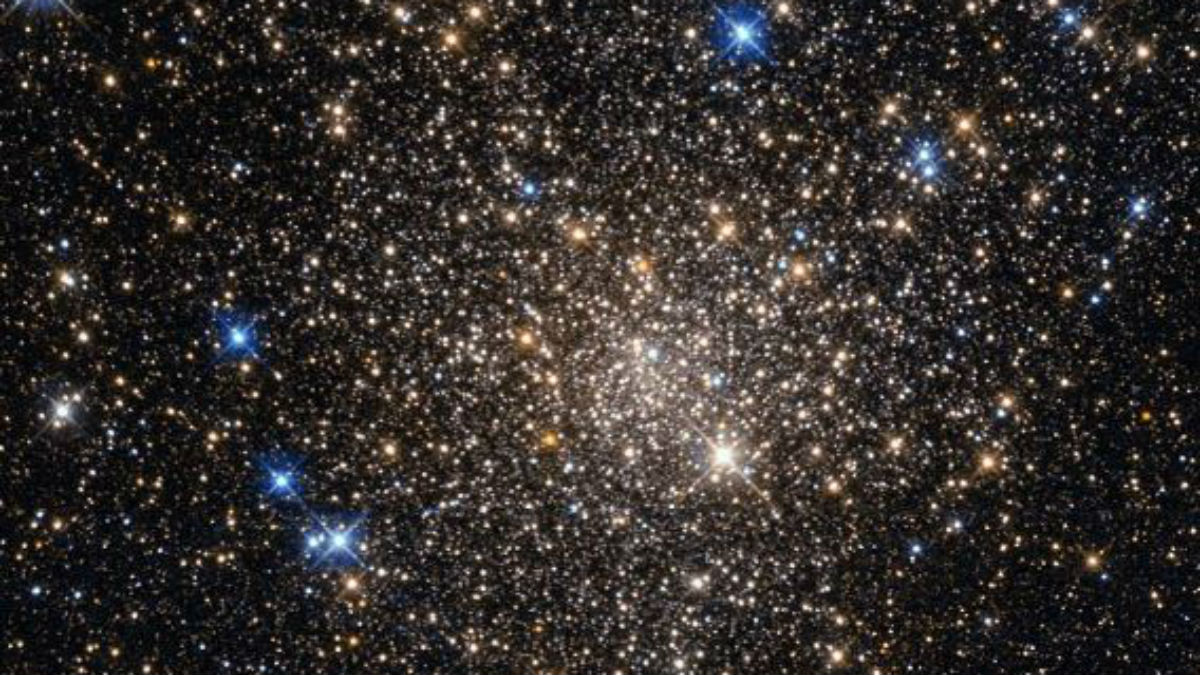Think you know your star sign? Most likely, you don't
Thanks to a phenomenon that has altered the position of the constellations we see today, most of us have the wrong horoscope

A free daily email with the biggest news stories of the day – and the best features from TheWeek.com
You are now subscribed
Your newsletter sign-up was successful
Some 98 per cent of Britons know their star sign, but the majority of them are wrong, according to the BBC.
Your star sign is supposed to be the constellation that was behind the sun when you were born, says the broadcaster – and for some 86 per cent of us, this is not the constellation we believe our star sign to be.
The discrepancy arises because the dates associated with star signs were set some 2,000 years ago when the zodiac was first invented. But the dates of the year are not properly in sync with the movement of the stars.
The Week
Escape your echo chamber. Get the facts behind the news, plus analysis from multiple perspectives.

Sign up for The Week's Free Newsletters
From our morning news briefing to a weekly Good News Newsletter, get the best of The Week delivered directly to your inbox.
From our morning news briefing to a weekly Good News Newsletter, get the best of The Week delivered directly to your inbox.
The phenomenon is called "precession", says the BBC, and it means the constellations have "drifted" out of their allocated date slots by about a month.
For example, Princess Charlotte, born on 2 May 2015, is "officially" a Taurus. In reality, the constellation behind the sun when she was born was Aries.
"As we orbit round the Sun, a different constellation appears behind it each month. Ancient astronomers named this ring the zodiac, meaning 'circle of animals'," explains Dara O'Briain. "It was the Greeks who came up with the idea of the personal 'star sign' – character traits determined by the constellation behind the Sun on the day you were born.
"The astrologers ran with this and that's where the problems started for the astronomers out there. The dates of the 'star signs' were fixed, over 2,000 years ago, when the zodiac was first devised."
A free daily email with the biggest news stories of the day – and the best features from TheWeek.com
On top of this, ancient astrologers divided the 360 degree path of the Sun into 12 equal parts, but in reality the boundaries that divide the constellations are far from equal, says the BBC.
The astronomical zodiac even contains a 13th constellation, called Ophiuchus, which sits behind the Sun from 30 November to 18 December.
The real astronomical star signs:
Capricorn: 21 January - 16 February
Aquarius: 17 February - 12 March
Pisces: 13 March - 18 April
Aries: 19 April - 14 May
Taurus: 15 May - 21 June
Gemini: 22 June - 20 July
Cancer: 21 July - 10 August
Leo: 11 August - 16 September
Virgo: 17 September - 31 October
Libra: 1 November - 23 November
Scorpio: 24 November - 29 November
Ophiuchus: 30 November - 18 December
Sagittarius: 19 December - 20 January
-
 6 of the world’s most accessible destinations
6 of the world’s most accessible destinationsThe Week Recommends Experience all of Berlin, Singapore and Sydney
-
 How the FCC’s ‘equal time’ rule works
How the FCC’s ‘equal time’ rule worksIn the Spotlight The law is at the heart of the Colbert-CBS conflict
-
 What is the endgame in the DHS shutdown?
What is the endgame in the DHS shutdown?Today’s Big Question Democrats want to rein in ICE’s immigration crackdown
-
 Epstein files topple law CEO, roil UK government
Epstein files topple law CEO, roil UK governmentSpeed Read Peter Mandelson, Britain’s former ambassador to the US, is caught up in the scandal
-
 Iran and US prepare to meet after skirmishes
Iran and US prepare to meet after skirmishesSpeed Read The incident comes amid heightened tensions in the Middle East
-
 Israel retrieves final hostage’s body from Gaza
Israel retrieves final hostage’s body from GazaSpeed Read The 24-year-old police officer was killed during the initial Hamas attack
-
 China’s Xi targets top general in growing purge
China’s Xi targets top general in growing purgeSpeed Read Zhang Youxia is being investigated over ‘grave violations’ of the law
-
 Panama and Canada are negotiating over a crucial copper mine
Panama and Canada are negotiating over a crucial copper mineIn the Spotlight Panama is set to make a final decision on the mine this summer
-
 Why Greenland’s natural resources are nearly impossible to mine
Why Greenland’s natural resources are nearly impossible to mineThe Explainer The country’s natural landscape makes the task extremely difficult
-
 Iran cuts internet as protests escalate
Iran cuts internet as protests escalateSpeed Reada Government buildings across the country have been set on fire
-
 US nabs ‘shadow’ tanker claimed by Russia
US nabs ‘shadow’ tanker claimed by RussiaSpeed Read The ship was one of two vessels seized by the US military